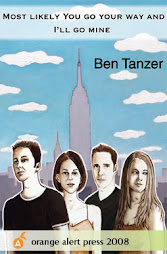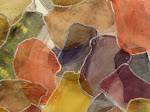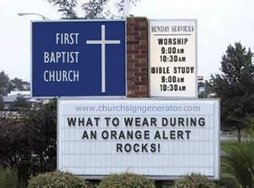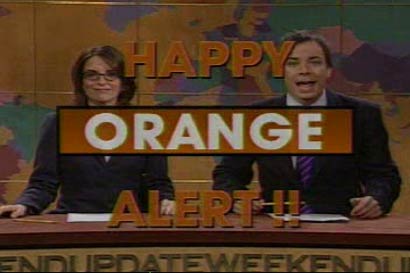
Doug Milam
While preparing to ask Washington writer Doug Milam a few questions I read back through the broadside, "A Little Money Down", that he had published by THE2NDHAND back in February. It felt more frantic, more necessary, more immediate this time around. It could be that everything feels more frantic, or it could just be the sign of a well-written story. The story follows the thoughts and actions of a criminal trying to make it in the "real" world, and as the line between fiction and reality blur the results are fatal. What caught me off guard was a series of ad slogans in the middle of story, and it only twisted further away from reality from that point. It was like a release of built up pressure and tension and stress.
While preparing to ask Washington writer Doug Milam a few questions I read back through the broadside, "A Little Money Down", that he had published by THE2NDHAND back in February. It felt more frantic, more necessary, more immediate this time around. It could be that everything feels more frantic, or it could just be the sign of a well-written story. The story follows the thoughts and actions of a criminal trying to make it in the "real" world, and as the line between fiction and reality blur the results are fatal. What caught me off guard was a series of ad slogans in the middle of story, and it only twisted further away from reality from that point. It was like a release of built up pressure and tension and stress.
Doug Milam, a former Chicagoan, published his collection short stories Still the Confusion in 2006. His works deals with breaking structure both literary and societal, and any piece is worth dissecting. In a recent interview with Todd Dills, Doug confess his literary connection to the beat generation authors, and this realization might explain the manic nature of his work. Regardless of influence, Doug is one those writers you really should be reading.
Recently, Doug was kind enough to answer a few of my questions.
Orange Alert (OA): Your recent broadside for the2ndhand, "A Little Money Down" is an incredible look a where the mind can go when forced, and easily the body follows. Does it seem more relevant now then when it was published back in February?
Doug Milam (DM): Thanks. More relevant...well, 'no' in the sense of personal experience. I'm not in as precarious of a position, economically. Yet, 'yes' in that increasingly there is a mental pressure to change my position, for my own health, and so move on, but not toward anything precipitous.
OA: In a preface to all of your political blog entries you mention that your next book is loosely focused on politics. What can you tell us about your upcoming novel?
DM: I have a didactic streak, for good or ill. Initially it was going to be a work of nonfiction, as a new challenge: a study of non-violent programs, one political, one religious, and their potential convergence. But I realized quite quickly that it would take far more research than I can invest in currently with a full-time job and so on. So my other sketch is a letter from father to son with plenty of socio-political content, but fiction all the same.
OA: How much research do you typically do before you sit down to write?
DM: In the case of fiction, not very much, in specific. There's an adage that computer programmers like to be lazy so as not to needlessly replicate algorithmic tedium. While I'm not a programmer, I've enjoyed trying to make this an analogy: not to spend hours and hours hunched over the minutiae of how a hospital really operates. In Still The Confusion, for instance, it's all imagination when the kid is lying in the hospital. I just wasn't going to visit any wards or talk to doctors to get the atmosphere. I think there's a definite place for realism, but it can also devolve into a kind of informational onanism. It's bad enough that I have a trivial mind... That said, I love to read nonfiction, so I'm absorbing fact and interpretation rather frequently. How that plays out as I write is part of the adventure.
OA: Your first collection, Still The Confusion, was published by Trafford. What was your experience like with them, and have you looked into publishers for your next book?
DM: It was a good experience with Trafford. But I had help, as well. A friend kindly arranged the contract by getting other friends to commit to chipping in for a copy, and all I had to do was set the layout myself and send them a Postscript file. The downside was that at the time I used Microsoft Word to typeset the text, which was a hassle. I wish I had known LaTeX instead.
OA: The cover of Still the Confusion is simple and straightforward. Was this by design? How much input did you have, and how important do feel the cover of a book is?
DM: It was by design, yes. I had full input. I was on a green kick, not in the environmental sense, but green was (and is) my favorite color and I wanted to 'brand' myself, much in the way that the White Stripes used red and white to arrest the viewer. Looking back, I'd do it over in black and white, because I don't like how the white text bleeds on a green background. I feel the cover of a book is very important. On the one hand, taking it seriously provides an amusing subversion of the admonition not to judge a book by it's cover, especially when clearly books are marketed a great deal on how their covers look, how large or small the author's photo is, how sexy or serious or absurd he or she looks, what fonts are hip, etc. And then to make the cover simple, boring even, is a further amusement in this regard. On the other hand, it's simply my own taste. Personally I like minimalism. I like how many of the small, academic presses style their covers. Take the Crofts Classics edition of Plato's Republic. It's ridiculously dull, from a fashionable point of view. The text on the white cover is not even black, it's brown. But man, what a text within! The cover should get out of the way. But, I will say that there are fine covers which are in full style, like the hardbound 'blue version' Hitchens's No One Left To Lie To, from Verso. Very germane to the humor within.
OA: What's next for Doug Milam?
DM: A treatise on covers! Seriously, I hope to see my long poem on Chicago forthcoming in 2009. I'd like to get my EP mastered. I recorded five songs a while back but I'm rather tentative about performing them in public, and so I haven't bothered to finalize it. I'll continue to write experimentally and see what interests me.
Bonus Question:
OA: Coffee? Washington is known for their coffee, where do you go for a cup?
DM: Oh, and I thought I was a coffee aficionado until I moved here. Once I discovered the French press, I was a changed man. I prefer to drink coffee black now, whereas before I had to alter it with cream and sugar. But I digress. The best here is to be found at The Black Drop, and at the Mount Bakery if you like a good mocha. But mostly I make it at home, with beans roasted right here in town by Moka Joe. It's so fresh, so buttery smooth...damn.
OA: What type of music do you listen? I know you're not all that close to Seattle, but the Northwest in general has produced tons of quality music. Do you listen to KEXP? Who are a few of your favorite bands?
DM: I don't listen to KEXP. I rarely listen to the radio here, although now and then I'll tune in to one of the public radio stations, KUOW or KZAZ. Favorite bands...The Stone Roses made a timeless, incomparable album of mood and place (their first). Digable Planets: amazing wordsmiths with premier grooves. I don't keep up with the current scene, although Neko Case is great. Mostly though I prefer old reggae and jazz.
Orange Alert (OA): Your recent broadside for the2ndhand, "A Little Money Down" is an incredible look a where the mind can go when forced, and easily the body follows. Does it seem more relevant now then when it was published back in February?
Doug Milam (DM): Thanks. More relevant...well, 'no' in the sense of personal experience. I'm not in as precarious of a position, economically. Yet, 'yes' in that increasingly there is a mental pressure to change my position, for my own health, and so move on, but not toward anything precipitous.
OA: In a preface to all of your political blog entries you mention that your next book is loosely focused on politics. What can you tell us about your upcoming novel?
DM: I have a didactic streak, for good or ill. Initially it was going to be a work of nonfiction, as a new challenge: a study of non-violent programs, one political, one religious, and their potential convergence. But I realized quite quickly that it would take far more research than I can invest in currently with a full-time job and so on. So my other sketch is a letter from father to son with plenty of socio-political content, but fiction all the same.
OA: How much research do you typically do before you sit down to write?
DM: In the case of fiction, not very much, in specific. There's an adage that computer programmers like to be lazy so as not to needlessly replicate algorithmic tedium. While I'm not a programmer, I've enjoyed trying to make this an analogy: not to spend hours and hours hunched over the minutiae of how a hospital really operates. In Still The Confusion, for instance, it's all imagination when the kid is lying in the hospital. I just wasn't going to visit any wards or talk to doctors to get the atmosphere. I think there's a definite place for realism, but it can also devolve into a kind of informational onanism. It's bad enough that I have a trivial mind... That said, I love to read nonfiction, so I'm absorbing fact and interpretation rather frequently. How that plays out as I write is part of the adventure.
OA: Your first collection, Still The Confusion, was published by Trafford. What was your experience like with them, and have you looked into publishers for your next book?
DM: It was a good experience with Trafford. But I had help, as well. A friend kindly arranged the contract by getting other friends to commit to chipping in for a copy, and all I had to do was set the layout myself and send them a Postscript file. The downside was that at the time I used Microsoft Word to typeset the text, which was a hassle. I wish I had known LaTeX instead.
OA: The cover of Still the Confusion is simple and straightforward. Was this by design? How much input did you have, and how important do feel the cover of a book is?
DM: It was by design, yes. I had full input. I was on a green kick, not in the environmental sense, but green was (and is) my favorite color and I wanted to 'brand' myself, much in the way that the White Stripes used red and white to arrest the viewer. Looking back, I'd do it over in black and white, because I don't like how the white text bleeds on a green background. I feel the cover of a book is very important. On the one hand, taking it seriously provides an amusing subversion of the admonition not to judge a book by it's cover, especially when clearly books are marketed a great deal on how their covers look, how large or small the author's photo is, how sexy or serious or absurd he or she looks, what fonts are hip, etc. And then to make the cover simple, boring even, is a further amusement in this regard. On the other hand, it's simply my own taste. Personally I like minimalism. I like how many of the small, academic presses style their covers. Take the Crofts Classics edition of Plato's Republic. It's ridiculously dull, from a fashionable point of view. The text on the white cover is not even black, it's brown. But man, what a text within! The cover should get out of the way. But, I will say that there are fine covers which are in full style, like the hardbound 'blue version' Hitchens's No One Left To Lie To, from Verso. Very germane to the humor within.
OA: What's next for Doug Milam?
DM: A treatise on covers! Seriously, I hope to see my long poem on Chicago forthcoming in 2009. I'd like to get my EP mastered. I recorded five songs a while back but I'm rather tentative about performing them in public, and so I haven't bothered to finalize it. I'll continue to write experimentally and see what interests me.
Bonus Question:
OA: Coffee? Washington is known for their coffee, where do you go for a cup?
DM: Oh, and I thought I was a coffee aficionado until I moved here. Once I discovered the French press, I was a changed man. I prefer to drink coffee black now, whereas before I had to alter it with cream and sugar. But I digress. The best here is to be found at The Black Drop, and at the Mount Bakery if you like a good mocha. But mostly I make it at home, with beans roasted right here in town by Moka Joe. It's so fresh, so buttery smooth...damn.
OA: What type of music do you listen? I know you're not all that close to Seattle, but the Northwest in general has produced tons of quality music. Do you listen to KEXP? Who are a few of your favorite bands?
DM: I don't listen to KEXP. I rarely listen to the radio here, although now and then I'll tune in to one of the public radio stations, KUOW or KZAZ. Favorite bands...The Stone Roses made a timeless, incomparable album of mood and place (their first). Digable Planets: amazing wordsmiths with premier grooves. I don't keep up with the current scene, although Neko Case is great. Mostly though I prefer old reggae and jazz.
For more information on Doug Milam please visit his website.
+by+Nick+Volkert).jpg)





















No comments:
Post a Comment